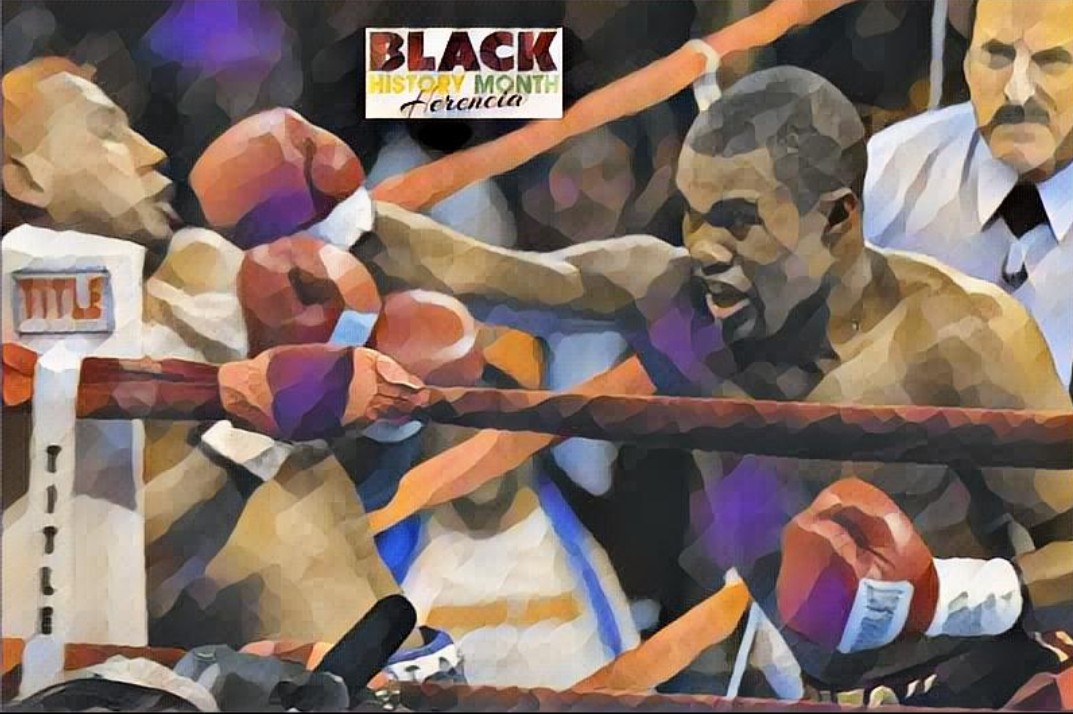This article was originally published in February 2022 as part of a project to celebrate the legacy and valuable contribution of Afro-Latino athletes for Black History Month. Today, we repost it following the same purpose.
Felix “Tito” Trinidad is considered one of the best boxers to ever come from Puerto Rico, an island known for producing some of the top boxers of all time, such as Miguel Cotto, Wilfred Benitez, Edwin Rosario, and Wilfredo Gomez.
Trinidad won multiple world championships in three different weight divisions. He debuted as a professional in 1990, at age 17, after a successful amateur career that saw championship conquests in five different divisions in Puerto Rico.
The love Puerto Rican fans had for him, his successes in ring, plus his fame and humility, helped create “Titomanía”, with large numbers of his fellow islanders supporting his fights and traveling to wherever Trinidad fought, chanting his name while holding up the Puerto Rican flag.
He won his first world championship in 1993, when he knocked out Maurice Blocker in two rounds to secure the International Boxing federation (IBF) welterweight title at 147 pounds. He defended the title for the next six and a half years beating renowned boxers such as compatriot Hector “Macho” Camacho, whom he beat by unanimous decision in his first fight in Las Vegas, Nevada.
He subsequently defeated Mexico’s Yori Boy Campas, Oba Carr and Pernell Whitaker, ahead of what many consider to be his most important and perhaps most controversial fight.
On September 18, 1999, Trinidad faced Oscar De La Hoya at the Mandalay Bay Hotel. De La Hoya kept the Puerto Rican at a distance with his jab winning the early rounds with flurries before the bell rang at the end of each round, while mostly avoiding Trinidad’s lethal punching power. However, by the tenth round the Mexican-American apparently fatigued, spent the next rounds on his bicycle running from Trinidad, barely connecting, or even throwing blows.
As a result, the judges gave the last two rounds to the Puerto Rican, who unified the welterweight title by taking a tight majority decision that was celebrated by thousands of his compatriots at the fight and on the island. Some others thought however, that De La Hoya had won enough of the early rounds to earn the final decision.

The fight against De La Hoya was for many years one of the highest grossing pay-per-view fights outside of the heavyweights, with a total of 1,400,000 buys.
That would be his last fight in the welterweight division before invading the junior-middleweight 154-pound category in 2000, winning the World Boxing Association world title by unanimous decision against David Reid. He defended the crown twice before moving up again to the very competitive 160-pound middleweight division, going on to win the WBA World Championship in 2001 with a TKO win over champion William Joppy, proving he could carry his punching power over to the heavier weight class.
This victory would set the stage for his quest to unify the middleweight title in a dream bout against Bernard Hopkins. The fight was arranged for Madison Square Garden on September 15 of that year, but the terrorist attacks of September 11 forced it to be postponed for two weeks.
While the fight was competitive in the early going, Hopkins’ size and strength helped him take command of the fight in the latter rounds, connecting the better of many power punches until Trinidad’s corner, headed by his father Felix Trinidad Sr., stopped the fight in the twelfth and final round. This was Trinidad’s first defeat in 39 professional fights.
Trinidad returned to the ring in 2002 to fight Hacine Cherifi, whom he knocked out in four rounds. After this fight, Trinidad announced his retirement from the ring.
Two comebacks, two failures
Trinidad decided to return to the ring in October 2004, where he beat former welterweight and super-welterweight champion Ricardo Mayorga via TKO in a highly emotional fight after Mayorga’s personally insulting pre-fight campaign and ring antics, in what would be his last victory in the ring.
In May 2005 he faced Ronald “Winky” Wright in an attempt to pursue a new title opportunity. Although he looked physically fit and made weight without problems, Trinidad looked slow, without spark and lost by wide unanimous decision, causing his second retirement.
Three years later, at age 35, the Puerto Rican came out of retirement again and took a fight against Roy Jones Jr. at a contract weight of 170 pounds, but as in his fight against Wright, he looked slow and without much energy and again lost by wide-margin unanimous decision.
Trinidad did not box professionally again after this. He was inducted into the International Boxing Hall of Fame in 2014, becoming the tenth boxer of Puerto Rican origin to receive that honor.
His accomplishments in the ring over a career that spanned more than 15 years, place Trinidad as a prominent Afro-Latino sports figure for recognition during Black History Month.
La entrada Black History Month: Felix “Tito” Trinidad, a legend of the ring se publicó primero en UNANIMO Deportes.







